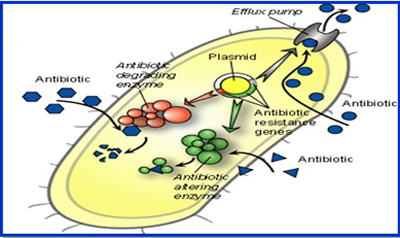Email: microcaresurat@gmail.com
microcaresurat@yahoo.co.in
Call Us: 0261-2450049
Microbes may be the most significant life forms sharing this planet with humans because of their pervasive presence and their utilization of any available food source, including humans whose defenses may be breached. Infectious diseases are still major cause of morbidity and mortality worldwide. According to WHO’s report of more than 17 million out of 52 million deaths were due to infectious diseases.
On the contrary 30 new infectious diseases were recognized in the world during last 20 years, (WHO. 2010). Numerous clinical specimens like urine, blood, sputum etc. containing enormous amount of infectious microbial flora, which are causative agents of dangerous communicable diseases.
These samples are tested in microbiological laboratories, to present data which indeed is helpful in the prevention, diagnosis and treatment of human diseases. Particularly for nosocomial infections these type of testing is useful in cases of antibiotic treatment failure against resistant microorganism
Plasmids carry genes for resistance to many other antimicrobial agents. Some genes codes for enzymes that modify or inactivate the agents, others for enzymes that alter drug targets in the cell or provide alternate biosynthetic pathways. Genes for antibiotic efflux (chloramphenicol, tetracycline) were also found to be plasmid determined.

Antibiotic resistance is an inevitable consequence of antibiotic use. Surveys have shown that as much as 50% of all antimicrobial use is inappropriate (Livermore , 2009). Determining the drug resistant in terms of quantity and quality is a real need of village, city or district.
Microbes may be the most significant life forms sharing this planet with humans because of their pervasive presence and their utilization of any available food source, including humans whose defenses may be breached. Infectious diseases are still major cause of morbidity and mortality worldwide. According to WHO’s report of more than 17 million out of 52 million deaths were due to infectious diseases.
On the contrary 30 new infectious diseases were recognized in the world during last 20 years, (WHO. 2010). Numerous clinical specimens like urine, blood, sputum etc. containing enormous amount of infectious microbial flora, which are causative agents of dangerous communicable diseases.
These samples are tested in microbiological laboratories, to present data which indeed is helpful in the prevention, diagnosis and treatment of human diseases. Particularly for nosocomial infections these type of testing is useful in cases of antibiotic treatment failure against resistant microorganism




